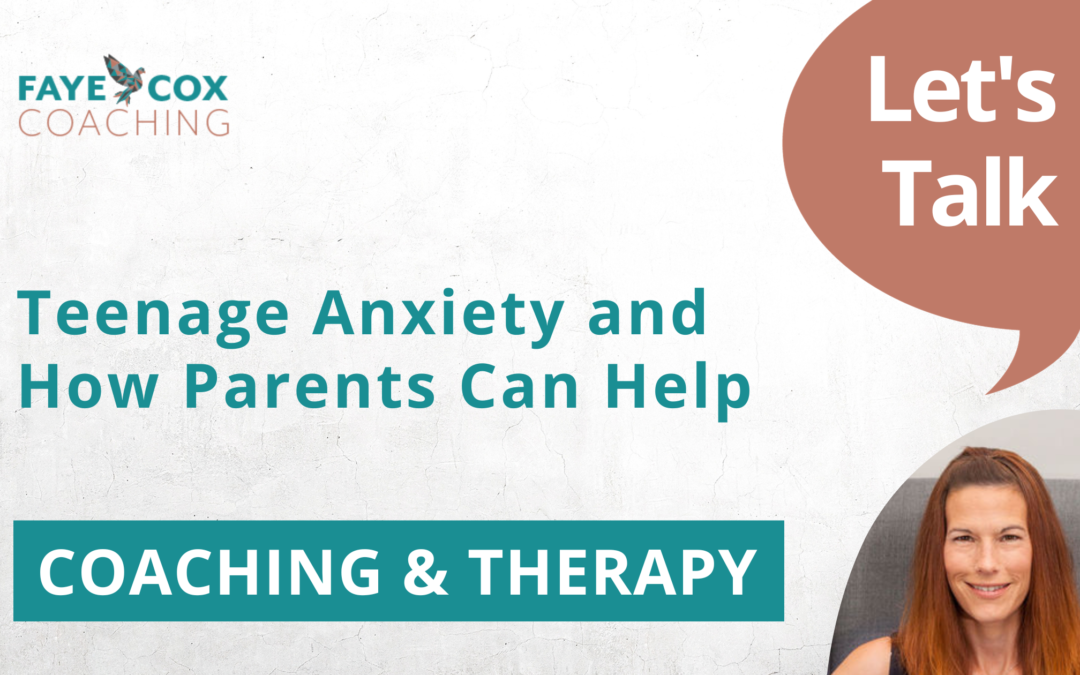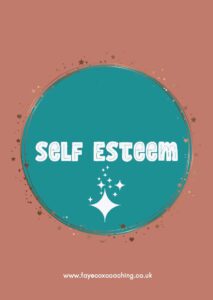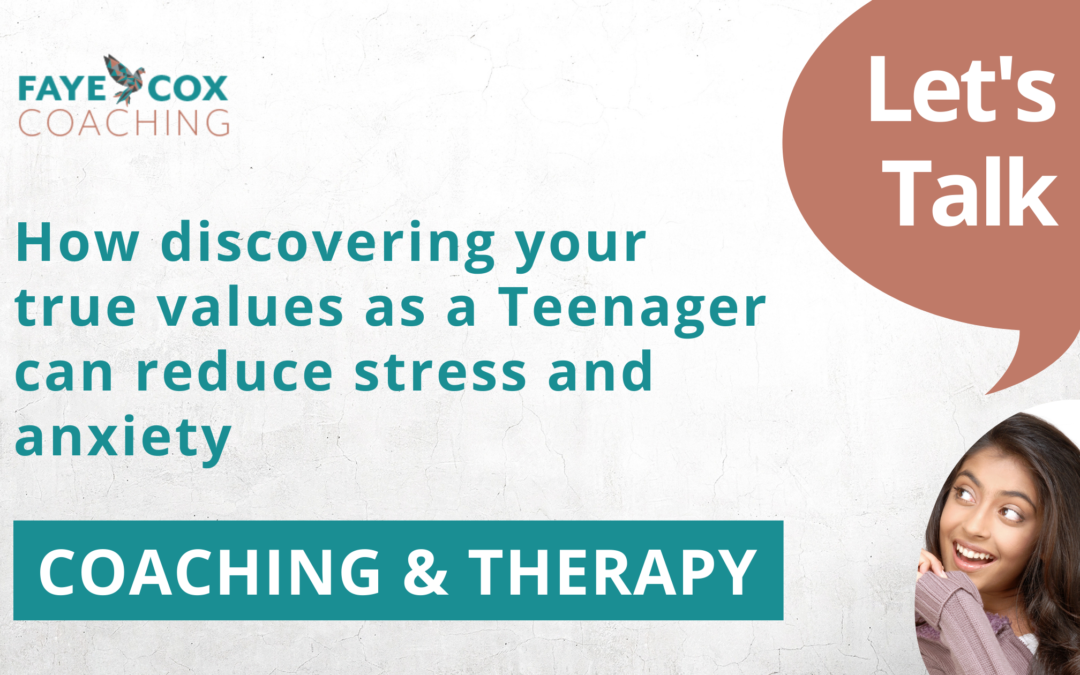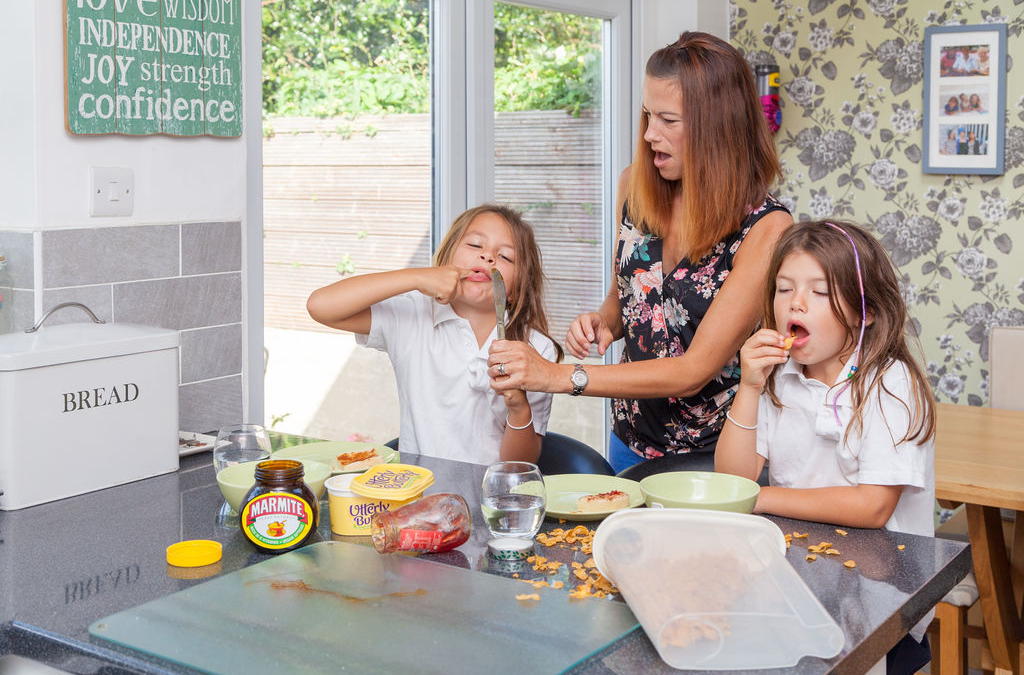
by Faye Cox | Sep 26, 2023 | Anxiety, Coaching, NLP, Parents, Stress, Teens, Wellbeing
What is Anxiety?
Everyone experiences feelings of worry from time to time. In fact worry is a natural response to the pressure of daily life and its our brains way of letting us know that something needs our attention. We can actually use our worry to our advantage when we’re doing something that we’re passionate about or something that is of risk, but that is a positive and calculated one.
In today’s hectic and constantly busy world it’s no surprise that people are experiencing more worry. Mainstream and social media play a big part in today’s constant feeling that a threat is just around every corner. The fact that our children and young people are increasingly more exposed to ‘perceived’ danger can become all consuming for their underdeveloped brains to cope with.
As humans we are conditioned to look out for threats, just as we did in the caveman days when the biggest threat was being attacked by a bear. As we’ve evolved our brains are still programmed to look out for the ‘Bear’, only 9 times out of 10 there isn’t one, but our minds cannot tell the difference between a perceived threat and a real one so we can become overly worried about something that isn’t real even though it emotionally and physically feels like it is. The good thing here is that we can use that to change the way we think of things and enable us to thank the bear for coming to keep us safe, but that he’s not actually needed here and can move aside.

Signs of Child and Teenage Anxiety
As parents it can be difficult to spot the signs of child and teenage anxiety so here are the most common:
- Lack of eye contact (this is a sign that they are shutting down emotionally)
- Shoulder shrugging when being spoken to (this is a sign that the brain is overwhelmed)
- Inability to focus (due to the anxiety becoming all consuming)
- Headaches and stomach aches (these are physical symptoms that anxiety is present)
- Tiredness (another sign that they are shutting down emotionally and physically)
- Feelings of sadness (due to not being able to understand what’s happening)
- Challenging behaviour (down to them not having the skills yet to communicate their fears)
- Rudeness (the logic part of the brain has gone off line and again they are struggling to understand and communicate their fears)
- Panic attacks (this happens when they can no longer control the physical and emotional symptoms and their anxiety has fully taken over)

The Fight, Flight, Freeze response
The above signs are a result of your child or young person entering what we call the ‘fight, flight, freeze response’ (FFF for short). Becoming aware of which response is their go to one, can be incredibly useful to both you and them. Becoming aware of your own is also key for you being able to regulate yourself when things get tough for your child or young person.
For simplicity let’s use the example of the BEAR in terms of how you deal with it when each of the FFF responses are switched on.
Fight – Speaks for itself really as you will want to fight the bear when this response is triggered
Flight – Again it’s quite self explanatory as when this response is switched on you will want to run from the BEAR
Freeze – In this response you will want to hide from the BEAR. Like a chameleon, you may want to blend in and disguise yourself so the bear can’t see you.
It’s very natural to enter all 3 responses. For example, you may initially fight and then freeze, or fight and then flee, or flee and then freeze. However, we tend to have an initial go to response in the first instance which is a tell tale sign that the response has been triggered.
In terms of school, this can lead to avoidance of either people, places or situations that are triggering one of these responses.

What can parents do to help Teenage Anxiety?
Another difficulty for parents can be that their child or young person may not be able to express how they feel. Parents need to feel comfortable really listening to what is being said and to remain curious when speaking to their child or young person about their feelings. Parents also need to know how to model healthy regulation of their own emotions which can be hard for some, particularly if this wasn’t modelled for them as a child.
When a young person reaches secondary school age they may be able to recognise their own feelings, but are still unable or unwilling to discuss them. The human brain is not fully developed until around 25 years of age and up until that point we live primarily in our emotional brain, and when our young people hit puberty there is a development surge in the brain which can cause A LOT of big emotions that as adults we see as over-reacting, but to our young people this is very REAL and often a scary and confusing time.
Allowing a space for your child or young person to turn to where they know they will be fully seen and heard is incredibly powerful. They don’t always want you to fix their worries. Quite often they just want you to sit in their worry with them for a while whilst they work it out for themselves.
If you found this article and teenage anxiety helpful you may like to visit the online shop or digital download pages on the website for more helpful resources to further support your child or teenager with anxiety.

by Faye Cox | Mar 15, 2023 | Anxiety, Coaching, Parents, Stress, Teens, Wellbeing
Wonderful things happen when you switch off from the noise of the outer word and focus on connecting with your teenager.
Having put in a boundary (these are so important through the tween & teen years) around phone and social media usage of an evening, our family is learning to better communicate and having some great discussions and openly talking around our day and the issues and even the good parts of the girls school day experiences.

Friendships and Social Media
Both girls have been having some issues around friendships and social media. Tell me a young girl who hasn’t! and they have been learning some tough life lessons on what’s right and wrong and what’s appropriate and not appropriate and what the consequences are of certain actions, not just for them but for those around them also.
Any woman will tell you that female friendships are incredibly complex at the best of times. Throw in 24/7 access and keyboard warrior bravery and you’ve got one hell of a pressure cooker going on inside a young girls head. A young girl who is new to navigating this level of pressure and who is only just starting to make sense of herself and the world around her.
Our girls are learning that their human brains are not designed to be ‘switched on’ all the time, that they’re not built for 24/7 access and that this is causing stress and anxiety as they are being exposed to what people are doing, thinking and how people are behaving towards them and others around the clock. They’re realising that it’s exhausting and that it’s affecting their mental health.

Validating their feelings
In one of our chats in my eldest daughter’s bedroom one night, we were discussing an issue that she was experiencing and both myself and my youngest daughter just listened and validated how she felt. We could both relate to what she was feeling, as we’ve both felt it too, but rather than go straight in to this is what you should do mode, I sat back and asked her some further questions about the situation so she could see all sides of what was going on and she could understand how others may also feel. Having this perspective allowed her to find some resolutions to the problem herself. Only then did I tell her my own experience and what happened for me back when I was at school.
We all talked about what it is to be a friend and what kinds of people we want in our lives as friends too. That friends are not perfect, and neither are we. That friends won’t always agree with us, and that doesn’t mean we can’t be friends with them, but how important it is to have a mutual respect for each other and the way we communicate our needs.
The hour we spent together reminded me so much of when I was at school, and me, my sister and mum would do the same thing. We would all be together in the kitchen after school and mum would listen to our troubles, offer her wisdom and then allow us to make our own decision.

When the shift happens
Amazing shifts take place when you genuinely connect with your kids on their level. When you listen to understand, rather than to judge, when you ask questions, as appose to lecture, when you validate their feelings instead of teaching them to bury them. When you connect on their level, they will listen to your guidance, they will ask questions and they will further open up knowing they can trust that you’re not going to go off your head in that moment, (even if your exploding on the inside!). Your child is not perfect, and they’re going to make mistakes that make your hair curl and your nerves stand on end. They’re going to do things that you don’t agree with and things that you consider to be wrong, but at the end of the day they’re still learning and as parents so are we.
This isn’t soft parenting as some people see it. This is building the foundation of mutual trust and understanding. It’s teaching them that it’s OK to talk about things and that it’s OK to ask for help. Most of all it’s about teaching them emotional Intelligence so that when they grow up, and they’re through those difficult teenage years where their emotional mind is very much leading the charge, they will be well rounded individuals who know how to emotionally support themselves and the people around them.
If you’d like to find out more about supporting your tween or teenager to make sense of themselves and the world around them you can contact me using the contact form.
You can also purchase my book ‘Making Sense of Me’ – a book written to my younger self and a guide for all teenage girls to support them in making better sense of themselves and the world around them.

by Faye Cox | Feb 3, 2023 | Anxiety, Coaching, Family, Parents, Stress, Teens, Tips, Uncategorized, Wellbeing
What are Teenage Values and Beliefs?
As human beings, we all have our very own map of the world. No two people’s are ever the same. You can be an identical twin, yet your world map will still differ.

No other person has experienced life through your lens. No other person has seen, heard or felt things exactly the same way you have. This is hugely beneficial to learn as it can relieve the pressure of feeling like you have to be like other people.
Values
Values are the things that are important to you. I call these your non-negotiables in life. For example, my values are honesty, compassion, empathy and respect. I live by these values, and when I feel one of them is not being met either by myself or by those closest to me, it can cause stress and anxiety.
Beliefs
Beliefs are what you believe to be true about yourself and the world around you. These can be anything from thinking that you’re not good enough at something, not tall enough for something or even that you can’t do something for whatever reason you’ve convinced yourself is true.
When you’re a young child, your values and beliefs are automatically the same as those closest to you: your parents, older siblings, grandparents, etc. But when you reach your teenage years, your actual values can get lost and confused with other people’s. You can even begin to doubt your family values and believe other families’ values align with what you want to believe.
These beliefs may suit your current lifestyle more, or they might be more relaxed, and that’s okay. It’s completely normal to question what you believe to be true and what your parents believe to be true as long as you do it respectfully. Remember, your parents may have lived by these values for a long time and will be deeply embedded in their minds. For someone to come along and question them can feel difficult and uncomfortable and like someone is disrespecting them.

As with most parents, they may not even know why they have them in the first place, as they too will have inherited some of their beliefs from their parents a long time ago.
When I was a child, my parents firmly believed that drawing on anything apart from paper was wrong. I know this was to stop me from writing on the walls when I was a toddler. Your parents may have told you the same thing. As an adult, I can realise what this means. Still, as a young child, this became so embedded in my mind that I believed that I was never to draw on anything except paper.
When my children suggested that we draw a rainbow on the pavement for the NHS during COVID, my instant reply was ‘no’. To which they both asked me why. I gave them the old ‘because I said so’ answer and thought that would be the end of it. But then they asked me why it was so wrong and gave me two very valid reasons why it should be okay; one being that it was to show support for the NHS and the other that they could easily wash it off.
Well, what could I say? I had nothing; no comeback could back up this belief my parents had given me as a young child. I even asked myself why and to my amazement, I had no real reason. I had acted instantly and unconsciously due to something drummed into me as a child. I’m sure you can guess what happened next – I told them we could get some chalk and create our rainbow. Their faces were a picture, and our rainbow was the talk of the close and stayed put until the rain came and washed it all away a few days later.

Why am I telling you about my old belief and rainbows? I want you to know that even we adults have old and outdated beliefs that influence our decisions regarding our children. Be mindful of this when your parents question your reasons for doing something.
It means that you, too, can change your beliefs about yourself. You, too, can believe that you CAN do something, that you are good enough.
When it comes to many things in life, it’s a good idea to take a closer look at your values so that you can live authentically as you. It can be difficult with so many outside influences, especially friends, but it’s fundamental to discover who you are and who you want to be.
So, how do you go about discovering your teenage values? I do this with all the young people I work with, and here is an exercise you can complete to do just that.
Teenage Values exercise
- Write a list of everything important to you, eg. family, friendship, kindness, integrity, honesty, learning, money, success, well-being, giving back to the community, faith, and caring for yourself and others.
- Narrow down your list to your three most important ones.
- Write down why each of these three values is important to you.
- Write down who you know who shares all three values.
- Write down who you know who shares at least two of these values.
- Give an example of how you live by each of your chosen values.
If you’re not already living by these three values, how can you make the necessary changes to include these in your everyday life? Are you living by these values in some parts of your life and not others?
If like so many other teenagers I work with, you’re finding it difficult to know what you believe to be true or how to live authentically as you then check out my book ‘Making Sense of Me’ which is out now. Alternatively you can book a call with me

by Faye Cox | Nov 17, 2020 | Uncategorized
Recently, I have suffered with a strong bout of anxiety. Due to a couple of events happening that have been accumulating to create the anxiety I experienced. Most people who generally don’t suffer with anxiety or recognise their own anxiety think that anxiety looks like chaos. They think it tends to be when people are acting chaotic, all over the place and up in the air or loud, but this is so often, not the case at all.
There are those who suffer and it shows externally and those who suffer and become withdrawn as a result and hide it internally.
When there’s too much going on
For me, there has been a lot going on recently with family, running a business, working with vulnerable teenagers, being a mum, being a wife and juggling the whole thing. Over the last month, I’ve been up and down from the hospital to see my dad who had major surgery. The journey to the hospital was an hour and then another hour back. My visiting times, a couple of hours at a time two or three times a week. This has been both mentally and physically exhausting. Even though you don’t think about it at the time, you get on with it and do what you’ve got to do.
On top of that, I’ve been trying to keep things as normal as possible. I’ve been doing a huge amount of work on myself and I have been investing in myself and my business heavily since the beginning of this year.
Working with vulnerable teenagers
I’ve been working with vulnerable teenagers since last September and sometimes that can be very challenging, although extremely rewarding. In the last month things have started to really get on top of me. My self-care hasn’t been as good as it should be, because I’ve been working on so many other areas.
Well this week. My dad came out of hospital after a month and the relief, as you can imagine, brought its own anxieties and emotions. Along with that, I made a mistake at the college, which ordinarily in isolation wasn’t that bad, but where everything else has been going on my mind decided to take this mistake, blow it massively out of proportion, get myself in a place where I was in tears. I got really emotional about it and couldn’t see the wood for the trees.
I went into college the next day, and I totally withdrew. I’ve taken time to recognise the fact that I was in this place of anxiety and to recognise how my anxiety affects me and how I deal with it around others. This is the first time I have fully been aware of my behaviour when in a state of anxiety, but as a result I can deal with it better using the techniques and strategies I have in my Coaching and CBT toolbox.
Recognising my own anxiety behaviours
I realised that I totally withdraw. I become very quiet, loud noise is something that I just can’t deal with. I can’t tolerate people talking about other people or bragging about themselves. I get super sensitive and I totally shut down anything external whilst I’m dealing with what’s going on inside my head.
Now this used to last for weeks or months until I worked out my own strategies for dealing with it. I now use the ‘accept, allow and let go’ strategy.
Firstly, I accept that I’m in this emotion and I have this feeling and this is what’s going on. I don’t try and fight it anymore. I accept it. I then allow myself. 24, hours to have the feeling, be comfortable with the feeling and work out how to separate the facts of what’s happened from the emotions I’m feeling.
After I’ve done that, I then make sure I go and do something for myself, whether it’s going to the gym and going for a run. I find running is great for me It just gets rid of all that negative energy.
Sometimes it’s whilst I’m running and sometimes it’s after, and if there is something particularly going on I will cry for the next few days for what feels like no reason at all, but this is my body’s way of getting rid of all the negative energy that I’ve been storing up.
After that. I’m ready to go again. And by doing that, I am able to let go so much quicker than I used to.
Talking about the taboo
If I’m completely honest, If you’d asked me years ago if I suffered from anxiety I would have told you DEFINITELY NOT. I never would have admitted that I suffered from anything let alone something that people consider a taboo subject.
I truly believe that everybody suffers with anxiety, at some point, in some form, to some level. It’s just whether we recognise that that’s what it is, whether we’re ready to accept it, and whether we’re ready to put the strategies in place in order for us to manage these feelings and be able to deal with them and move forward.
So, with that in mind, please remember that somebody may be suffering right now. Somebody may have withdrawn. Somebody may be very quiet. Somebody may be the complete opposite. Because the opposite to that is that somebody may become louder than usual. They may become more erratic. You may feel like they’re just seeking attention. This is all part of how they’re feeling and how their anxiety may have taken hold. Some people feel a stronger need for control, as they don’t feel in control of their thoughts and emotions, so they project externally on to others.
They may not even recognise that’s what’s happening to them. So be kind. If somebody that you know, somebody you work with, live with, are friends with is showing either of these signs or emotions, just check in with them. Find out if they’re OK. Offer them someone to talk to.
I had somebody at the college this week, who I get along very well with, we understand each other really well and we know when something’s not quite right and she’s been amazing. This week, she’s checked in on me. She’s made sure I’m OK. She’s given me a bit of a talking to. The same talking to the I would give her if she was in the same situation.
We all need support
We all need support and sometimes that support comes from people that you don’t necessarily expect it to straight away.
We all need to look after each other, be more open with our own feelings and what we’re going through, because you will be surprised where that support may come from.
If you feel like you might need help with anxiety, if you need some strategies and techniques to help you manage it, I’m always happy to have a chat.
I offer a 30-minute clarity call where I can give you a strategy straight away to help you begin to manage those more difficult days.
Please don’t suffer in silence.
Book your call here

by Faye Cox | Jun 9, 2020 | Tips
Unfortunately, there are many times in our lives when stress creeps in and causes great angst. Life is busy and work, kids, school and responsibilities can seem overwhelming at times.
74% of UK adults have felt so stressed at some point over the last year they felt overwhelmed or unable to cope.
81% of women said this compared to 67 percent of men. 83% of 18-24 year-olds said this compared to 65 percent of people aged 55 and over. (Source: mentalhealth.org.uk)
Do you feel that your stress is getting you down?
Here are some tips to help deal with stress and its after-effects.
Stress has become a major cause of anxiety and panic attacks. If not dealt with, it can have an incapacitating effect on your life. More often than not, most people with A-type personalities are prime candidates for stress induced symptoms. The perfectionism they seek in everything they do never quite measures up to their expectations. This is not a perfect world; and it’s time those who live in it realize they aren’t perfect either, and nor should they be.
Most people deal with stress in different ways; either they ignore the initial problem which caused it; retreat within themselves or fall apart. However, those who recognize the signs nip it in the bud before it completely takes over. Using simple exercises can relieve the onset of stress. For example: While sitting at your desk at work, breathing exercises can bring you back to a calm state. Going outside for some fresh air also helps.
Walking or running for 20 minutes can release endorphins which relieve stress. Listening to classical music lowers the blood pressure and brings calm within.
Sometimes, however, stress reveals itself in other ways. Light headedness, an inability to focus, feelings of pressure and palpitations are all symptoms of stress. Moreover, continued stress can produce anxiety, panic, and the fight or flight syndrome. Here is one such case of how stress can simply overwhelm and, in some cases, debilitate.
A secretary was called into her administrator’s office, which was quite large and comfortable. As she was taking dictation, she suddenly found it hard to breathe; began to lose focus; and a queasy feeling in her stomach emerged. She could no longer concentrate and left the room suddenly.
Unbeknown to her, she had just experienced an anxiety attack brought on by stress. However, while there was nothing stressful going on at the time, she later identified the cause. An unpleasant thought had entered her mind while she was taking dictation, causing fear to take over forcing her to leave the office.
Upon further examination, it was determined the stress in her home life simply became too much, and filtered its way in to her working day.
This happens all too often and vice versa, where work stresses can filter in to your family life causing arguments. health issues and in some cases total disconnection from your loved ones!
If stress is getting you down, examine the cause. Determine the origin and discuss it with a professional or a loved one. Stress, if not acted upon, can cause serious health problems. Avoid it wherever and whenever you can.
You can learn more about reducing stress in our Personal Transformation Mastery self-study course.
If you need any further help reducing stress or creating healthier habits to move you towards success you can email me or take a look at the services we offer here. Using the FLOAT system we take our clients from Chaos to Calm in both life and business and help you create the success you deserve.
You can also come and join us over on Facebook in The Positivity Hub, where we talk all things, mindset, confidence and positivity.













